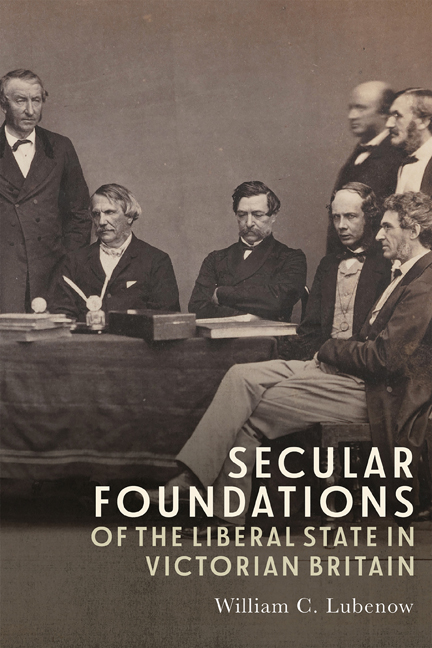Book contents
- Frontmatter
- Dedication
- Contents
- Preface
- Introduction: Methods, Materials, and Theses
- 1 From the Fiscal–Military–Confessional State to the Secular–Liberal State
- 2 From the Northcote–Trevelyan Report to the Order in Council of 1870
- 3 The Haldane Committee and the Creation of the Cabinet Office: Hankey to Hunt
- 4 “Fit and Proper Persons”: The Secular Clerisy
- 5 The Secular Clerisy’s Outillage Mental and Mandarin Solidarity
- 6 Regions of Doubt and Belief – Varieties of Secular Experience: Essays and Reviews, Ecce Homo, and the Gifford Lectures
- Conclusion and Epilogue
- Select Bibliography
- Index
1 - From the Fiscal–Military–Confessional State to the Secular–Liberal State
Published online by Cambridge University Press: 09 May 2024
- Frontmatter
- Dedication
- Contents
- Preface
- Introduction: Methods, Materials, and Theses
- 1 From the Fiscal–Military–Confessional State to the Secular–Liberal State
- 2 From the Northcote–Trevelyan Report to the Order in Council of 1870
- 3 The Haldane Committee and the Creation of the Cabinet Office: Hankey to Hunt
- 4 “Fit and Proper Persons”: The Secular Clerisy
- 5 The Secular Clerisy’s Outillage Mental and Mandarin Solidarity
- 6 Regions of Doubt and Belief – Varieties of Secular Experience: Essays and Reviews, Ecce Homo, and the Gifford Lectures
- Conclusion and Epilogue
- Select Bibliography
- Index
Summary
The English way is a committee – we are born with a belief in green cloth, clean pens, and twelve men with grey hair.
Walter BagehotBagehot's telling remark expresses the result of a consequential change in British political experience from what one historian has called a court-based culture to a club-based culture. This was a transformation from the gentleman who was a courtier unafraid to “proclaim his superiority, uninhibited in his conduct, bold in his demeanour, and proud of his homage” to the gentleman as mandarin who was “discreet in manner, unpretentious in appearance, reserved if not cold, keeping his warmth for his home and hearth, disdainful of men and their wants, devoted to public duties.” This transfor¬mation was not so much a decline of one group and their culture and the rise of a new one; it was a dynamic of differentiation in which a more pluralistic civil society with more secular values emerged.
“Fall” and “rise” are powerful and dramatic metaphors. They are provocative concepts and there might be much emotional truth to them. Two reservations might be raised against them though. First, they are metaphors of description which often reflect the anxieties of the times which produce them. They are often defensive expressions of people for, or against, changes that they wish for or oppose. They are often statements about the way they want the world to be rather than the world as it is (or was). Metaphors of this kind trap their subject in particular narratives. Would that historians could escape the captivity of that trap. Second, because of the drama and power of such metaphors, they express a binary world seemingly producing large-scale social movements. They deprive their subjects of agency and freedom. Lurking beneath these metaphors is a particular doctrine, part of the myths and traditions of modernity. This doctrine asks who fits the modern world. Who belongs? Who is “modern”? Historians have struggled with these questions of method and have, sometimes, recorded their places in this historiography lurching back and forth between synchronic and diachronic impulses.
- Type
- Chapter
- Information
- Publisher: Boydell & BrewerPrint publication year: 2024



